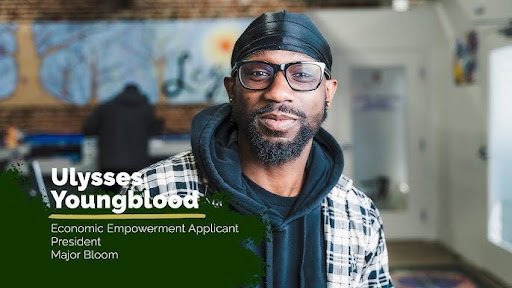 Equity-driven cannabis businesses have emerged as pivotal players in the fight for social justice, advancing the rights of communities disproportionately impacted by the War on Drugs. These businesses are bolstered by cannabis equity programs, which function as both positive impact initiatives and diversity frameworks designed to correct past injustices through community reinvestment, education, and fair licensing practices. In 2018, Massachusetts made history by launching the nation’s first statewide cannabis equity initiative, which set a precedent for states, counties, cities, and towns across North America to follow suit.
Equity-driven cannabis businesses have emerged as pivotal players in the fight for social justice, advancing the rights of communities disproportionately impacted by the War on Drugs. These businesses are bolstered by cannabis equity programs, which function as both positive impact initiatives and diversity frameworks designed to correct past injustices through community reinvestment, education, and fair licensing practices. In 2018, Massachusetts made history by launching the nation’s first statewide cannabis equity initiative, which set a precedent for states, counties, cities, and towns across North America to follow suit.
These programs have largely gained momentum without federal backing, reflecting a grassroots determination to redress local inequalities. The need for such initiatives stems from years of federal policies that targeted Black and Brown communities, resulting in vastly disproportionate arrest and incarceration rates. In fact, Black Americans are almost four times as likely as their white counterparts to be arrested for cannabis offenses, despite similar usage rates. This disparity contributes to the U.S.’s notably high prison population, which outpaces that of many other countries.
Viewed through the lens of reparative justice, cannabis equity programs offer a pathway to economic restoration for historically marginalized groups. Ideally, these efforts will spark similar initiatives across other sectors, advancing broader social repair and economic opportunity.
Building Equity Beyond the Cannabis Industry
Expanding on the idea of equity in cannabis as a vehicle for reparations, there’s an opportunity to explore how cannabis could lead a movement toward a more just society. Equity programs could inspire reparative measures in industries like education, housing, and healthcare, where disparities persist.
Connecting Cannabis Equity and the Prison Pipeline
The history of cannabis criminalization aligns closely with the over-incarceration of Black and Brown individuals. Today, while legal cannabis is becoming more accessible, many states report a shrinking percentage of Black-owned cannabis businesses. This disparity reflects ongoing biases in both the legal and licensing systems, which have historically limited opportunities for communities of color to participate in the industry.
Economic Benefits of a Reparative Tax System
A reparative tax system for cannabis could redistribute wealth and help bridge the racial wealth gap, with federal-level support for communities affected by cannabis prohibition. This tax initiative could extend benefits to descendants of those impacted by slavery, echoing broader reparative justice themes. Studies show that Boston, like many U.S. cities, has a growing wealth gap that disproportionately affects people of color. While the legal cannabis industry expands, the rate of Black-owned cannabis businesses has yet to reflect this growth, underscoring the need for targeted support.
Final Thoughts: Background and Context
Understanding the need for cannabis equity requires historical context. The disparity in wealth and access to opportunity for Black and Brown communities in the U.S. is the result of centuries of systemic racism. As the cannabis industry continues to evolve, equity programs offer an essential step in reversing these wrongs, both for individuals impacted by cannabis prohibition and for future generations. However, achieving meaningful equity will require ongoing support, advocacy, and policy refinement.
Equity in cannabis is more than an industry trend—it represents a critical pathway for societal change. By examining the intersections between cannabis equity, the criminal justice system, and reparative justice, this blog highlights the unique role cannabis equity programs play in redressing historical injustices. Through initiatives that prioritize marginalized communities, cannabis equity can pave the way for a more inclusive and fair future.
